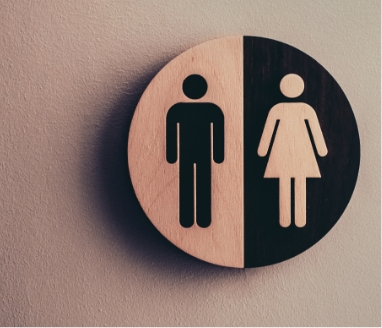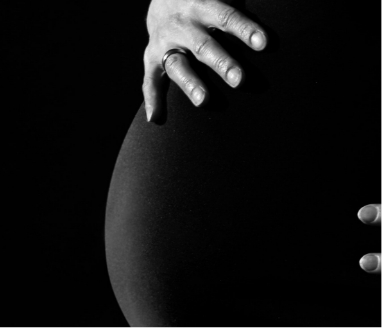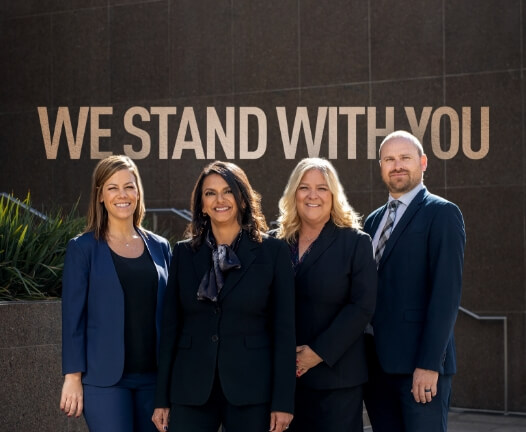San Diego
RELIGIOUS Discrimination
Lawyers
Employee discrimination is a serious issue in the State of California. State and federal laws govern employers and employees. If you suffered discrimination while working or seeking work in the State of California, you have options for holding an employer accountable for their actions. You should understand important details regarding employment law in California.
The San Diego employment discrimination attorneys of Haeggquist & Eck, LLP offers legal representation for employees who suffer employment discrimination in San Diego and surrounding counties. Call our office today for a free case evaluation during which we can discuss the facts of your case. Retaining an attorney is an important step to take when you want to hold your employer liable for discrimination.
No one wants to feel discriminated against at work.
Call a San Diego religious discrimination lawyer ASAP.
Table of Contents
Laws Against
Religious Discrimination
Employers can unlawfully discriminate based on many protected characteristics, including religion. Religious discrimination happens when an employer treats an applicant or employee unfairly due to their religious beliefs. Unfair treatment can involve adverse employment decisions, policies that impact certain employees differently, etc.
If you believe that you suffered religious discrimination at work in the San Diego area,
never hesitate to reach out to our legal team at Haeggquist & Eck, LLP. We stand up for clients who experienced unlawful treatment by employers, and we can assess your legal options. Contact us for a free case evaluation today.
Discrimination due to an employee’s religion is unlawful under federal and state laws. Title VII of
the Civil Rights Act of 1964 and California’s Fair Employment and Housing Act (FEHA) prohibit employers from discriminating.
Employees might bring legal claims against discriminatory employers at the federal or state level, and this is a decision you should carefully consider with help from our employment discrimination lawyers.

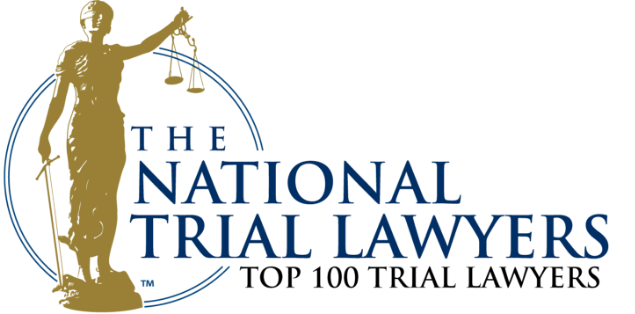
How Religious Discrimination
HAPPENS?
Religious discrimination can happen at any stage of employment, from applications from prospective employees to termination.
Some employment actions that might constitute discrimination due to someone’s religion include:
- Denying a job
- Inquiring about someone’s religious beliefs in an interview
- Denying someone a promotion or pay increase
- Demotion or pay decreases
- Undesirable assignments or shifts
- Termination
- Harassment
- Denial of reasonable accommodations for religious beliefs
If an employer takes an adverse employment action against someone because of their religion, the employee may hold the company accountable for violating the law and the employee’s rights.
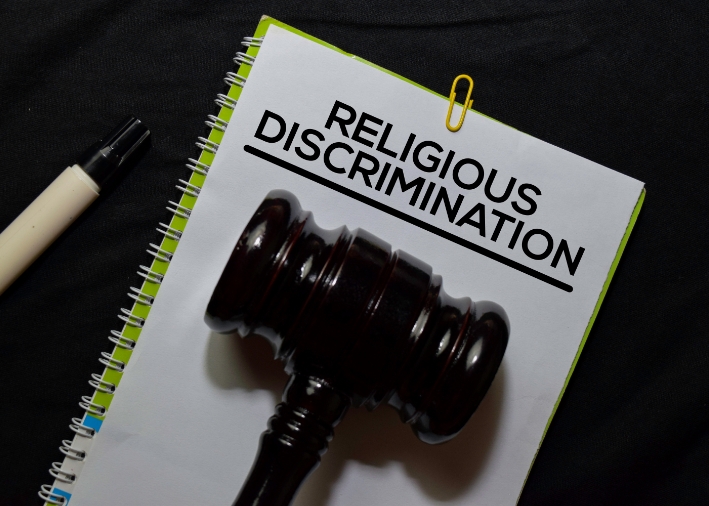
Religious
Harassment
One commonly overlooked type of discrimination is harassment. Most people associate employment harassment with sexual harassment, though unlawful harassment can happen based on protected factors. In recent years, harassment based on religion has increased in United States workplaces, and employees should stand up against harassment.
Religious harassment happens when conduct by others at work is offensive or pervasive enough to create a hostile work environment. Conduct might include derogatory comments, offensive jokes, threats, or even physical assault. A single incident might not rise to the level of unlawful harassment unless it is highly offensive.
If you believe you are experiencing harassing conduct, you must report the matter to your employer. Your employer must take steps to stop the harassment, and if it does not, you have the right to bring a discrimination claim due to a hostile work environment.
If you are experiencing harassment and do not feel comfortable reporting the matter to your employer, reach out to our legal team for guidance. Also, if you reported harassment and your employer failed to stop it, never wait to seek help from our religious discrimination attorneys.

We provide life-changing results and closure for employees and consumers. We are proud to be San Diego’s employee and consumer rights advocates. Our passion doesn’t stop in the courtroom either.
Reasonable Accommodations for
Religious Beliefs
Religious beliefs can sometimes interfere with a traditional work schedule or employer policies. The law allows employees to request reasonable accommodations for sincerely held religious beliefs. Such reasonable accommodations should allow employees to perform and maintain their jobs while still honoring their religious practice.
Some reasonable accommodations might include:
- Exceptions to dress code policies, such as allowing an employee to wear religious headwear, certain hairstyles, or facial hair
- Properly timed breaks to coincide with prayer time.
- Not working on a Sabbath or religious holidays.
Employers must provide accommodations when requested unless it will cause the company undue hardship. Further, a company cannot provide an accommodation that segregates the employee from the public or other workers. An example of unacceptable accommodation is allowing an employee to wear a hijab at work but moving them to a stock room instead of a store floor so customers cannot see their headwear.
Denying an employee a properly requested and reasonable religious accommodation without justification is a form of unlawful discrimination, and you should not have to accept this conduct from your employer.
If you have questions about your rights to religious accommodations or believe your employer violated those rights, reach out to a discrimination attorney at Haeggquist & Eck, LLP, immediately.
Unlawful
Retaliation
Too many employees never report religious discrimination because they are afraid of how their employers will react. If an employee causes “trouble” by bringing up possible discrimination or harassment, they might fear their employer firing or otherwise punishing them. However, employment laws prohibit such retaliation by employers against employees for reporting concerning conduct.
You have the right to complain of possible discrimination, and your employer cannot retaliate against you. If your employer does this, seek help from an employment lawyer immediately.

Proving a
Religious Discrimination Claim

The law is clear about an employee’s right to freedom from religious discrimination. However, employers are also adept at defending against discrimination claims. Employers want to avoid liability to a current or former employee, and they also want to maintain their reputations of being good companies to work for.
Employers will often give other reasons for adverse employment actions that distract attention from an employee’s religion. Our attorney can identify when such reasons are pretextual, and an employee must provide evidence of this pretext, plus the true reason for the employment action. This makes proving discrimination claims challenging, so you need the right legal help.
In addition, employers often claim undue hardship to avoid providing accommodations when no undue hardship exists. You want an experienced attorney who knows how to prove that you deserved the accommodations and stands up for your rights.
Frequently Asked Questions: Religious Discrimination in San Diego
What is religious discrimination?
Religious discrimination occurs when an employee or job applicant is treated unfavorably because of their religious beliefs, practices, or affiliation. This can include discrimination based on religious dress, grooming practices, or observance of religious holidays.
What laws protect against religious discrimination in San Diego?
Several laws protect against religious discrimination, including:
- Title VII of the Civil Rights Act of 1964 (federal law)
- California Fair Employment and Housing Act (FEHA)
- California Religious Freedom Act
What are some examples of religious discrimination in the workplace?
Examples include:
- Refusing to hire someone because of their religious beliefs
- Creating a hostile work environment based on religion
- Denying reasonable accommodations for religious practices
- Wrongful termination due to religious beliefs
What is a “reasonable accommodation” for religious practices?
Employers must provide reasonable accommodations for an employee’s religious beliefs or practices, unless doing so would cause undue hardship to the business. This may include flexible scheduling, voluntary shift substitutions, or modifications to workplace policies.
Can an employer prohibit religious dress or grooming practices?
Generally, no. Employers must accommodate religious dress and grooming practices unless it causes undue hardship. This can include wearing religious clothing, head coverings, or maintaining certain hairstyles or facial hair.
What should I do if I experience religious discrimination at work?
- Document the incidents in detail
- Report the discrimination to your employer’s HR department
- File a complaint with the Equal Employment Opportunity Commission (EEOC) or the California Department of Fair Employment and Housing (DFEH)
- Consult with an experienced San Diego religious discrimination lawyer
How can a San Diego religious discrimination lawyer help me?
An experienced attorney can:
- Evaluate your case and explain your rights
- Help you file administrative complaints with the EEOC or DFEH
- Negotiate with your employer for a settlement
- Represent you in a religious discrimination lawsuit
- Seek compensation, including back pay, front pay, and punitive damages
Is there a time limit for filing a religious discrimination claim?
Yes. In California, you generally have 300 days from the date of the discriminatory act to file a charge with the EEOC, or one year to file with the DFEH. It’s crucial to act promptly to preserve your rights.
Do I need to pay for an initial consultation with a religious discrimination lawyer?
Many employment law firms, including ours, offer a free case evaluation or consultation to discuss your situation and potential legal options.
What types of compensation can I receive for a successful religious discrimination claim?
Potential compensation may include:
- Lost wages and benefits
- Emotional distress damages
- Punitive damages (in cases of egregious conduct)
- Attorney’s fees and court costs
For more information or to discuss your specific case, contact our experienced San Diego religious discrimination attorneys for a free consultation.

Discuss Your Option with a San Diego
Religious Discrimination Attorney
At Haeggquist & Eck, LLP, our employment discrimination lawyers are passionate about protecting the rights of employees in San Diego, including those who experience religious discrimination. If you want to learn about your legal options and know whether you might have a discrimination case, contact us at (619) 342-8000 for a case evaluation. We are ready to fight for your rights and hold employers accountable for violating the law.
What Our Clients Say
TESTIMONIALS
Christy, Thank You!
Christy has been such an amazing help and resource over the years.
D.D.
Christy was just amazing.
C.T.
Attorney
Christy, thank you so much!
A.B.
Attorney
Christy Heiskala is the Best!!
A.S.
Attorney
The experience more than exceeded my expectations.
“I began my quest to find justice very uncertain and a bit scared of what the road ahead would look like. I met with both Alree and Jenna and the really made me feel like they were part of my team and like I was a part of their team. Jenna saw my case through to the end and was not just a "transactional lawyer", but instead made herself available for all the other questions and concerns that come about for someone who finds themselves needing representation but isn't totally prepared for the ups and downs of the process. She was very clear about what was feasible but always reminded me that I was the one in control of the next steps. The experience more than exceeded my expectations.”
K.H.,
former client
His legal representation restored my faith in the justice system.
“In my case, Aaron and his Team was not only extremely knowledgeable, but they were highly sensitive to the fact that it was proving to be a traumatic experience for all involved. Aaron and his team would 'check in' with me and make sure I knew what was happening at all times and always had my best interest.
His legal representation restored my faith in the justice system. If you're seeking legal help I highly recommend this firm.”
M.O.,
former client
Bless Christy Heiskala and the entire Haeggquist & Eck, LLP team for their consistent and enduring support.
“I’d never been a part of a lawsuit before, and honestly didn’t know what to expect. To receive such compassionate and informed care from the HAE team heading into legal mediation allowed me to show up calm, cool, collected, and the best version of myself in order to directly and effectively speak truth to power. Bless Christy Heiskala and the entire Haeggquist & Eck, LLP team for their consistent and enduring support.”
B.E.,
former client
I am lucky to have found your firm and grateful that you took my case.
K.D.,
Former Client
Your professional approach and seasoned advice were instrumental in bringing my issues.
B.H.,
Former client
We overwhelmingly recommend your counsel.
J.L.,
client
You will get the best possible service with this firm!
R.D.,
Former Client
I recommend Haeggquist & Eck to anybody needing legal representation.
C.Z.,
Former client
- 619-342-8000
- 225 Broadway, #2050 San Diego, CA 92101

